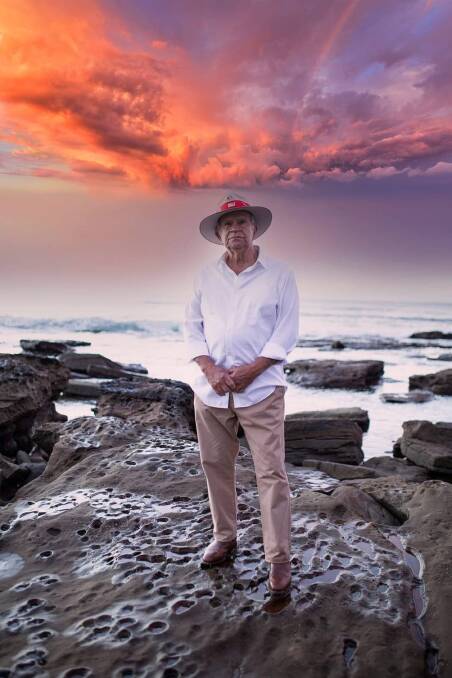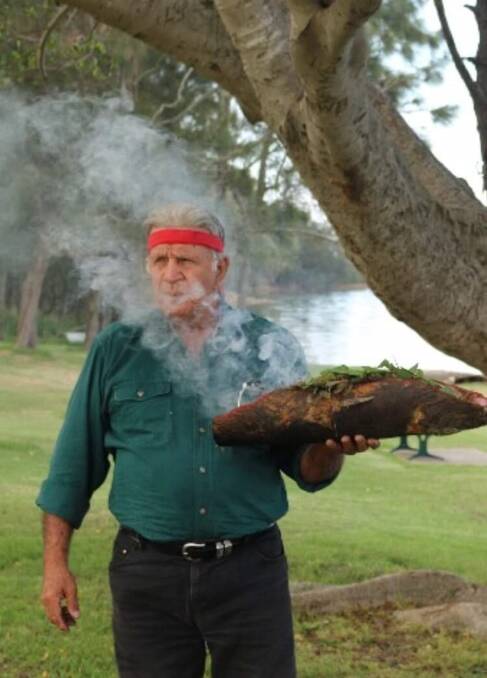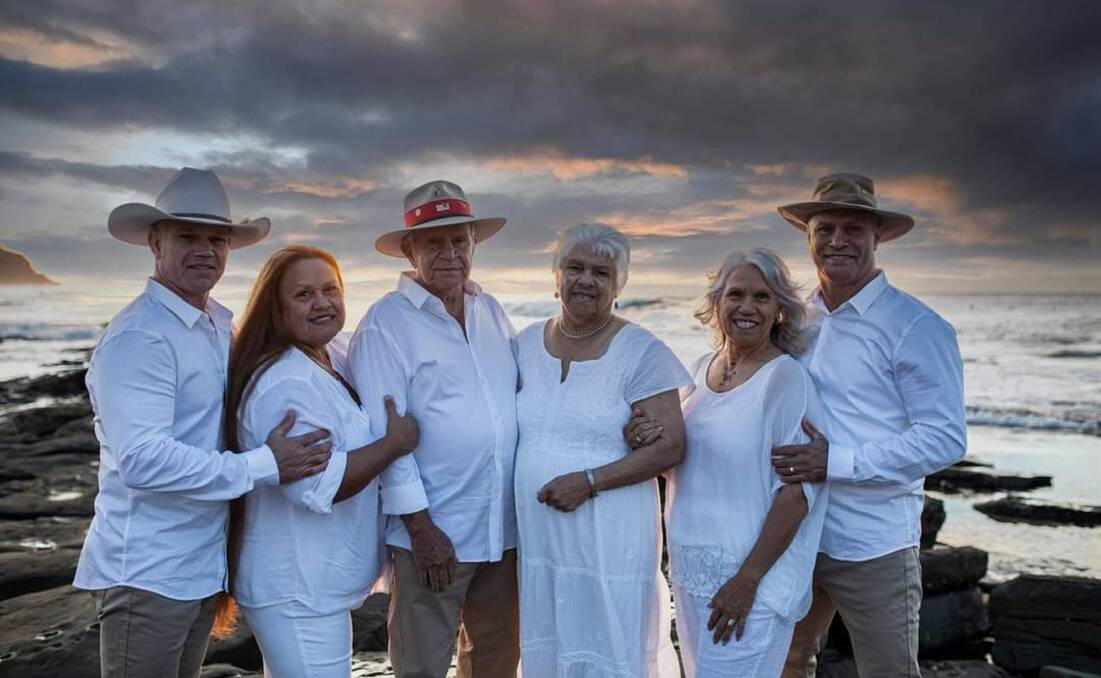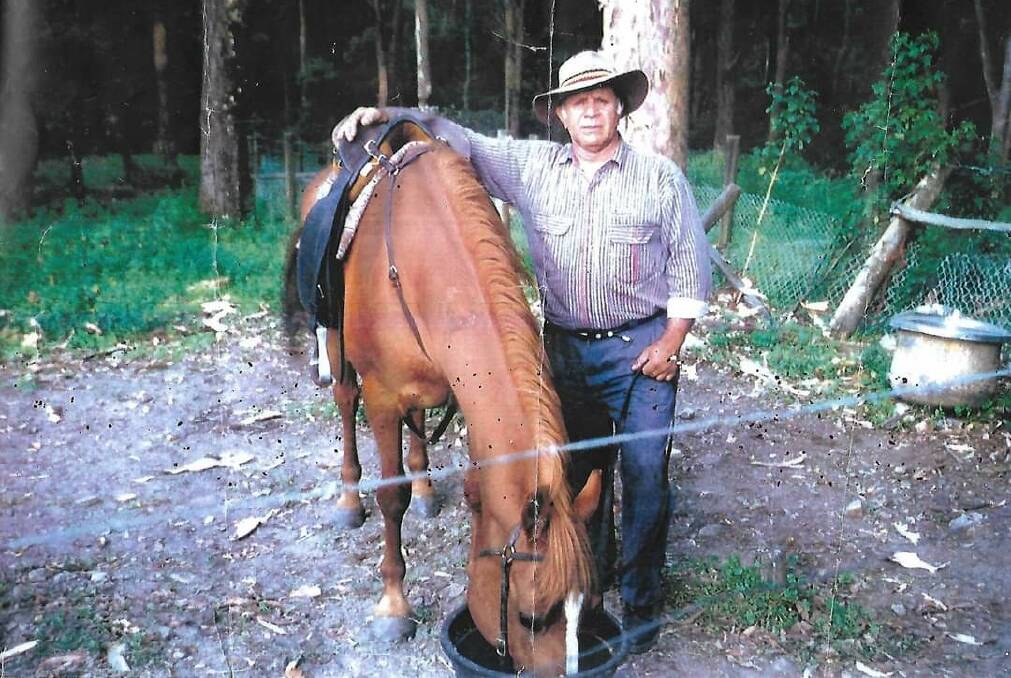
AS the co-founder of a family company that laid railway tracks, Bill Smith literally helped Australia go places.
Subscribe now for unlimited access.
$0/
(min cost $0)
or signup to continue reading
Smith General Contracting, which employed hundreds of Aboriginal workers, did railway contract work for BHP in Newcastle and Port Kembla, as well as undertaking other major projects, including the line to the Port Waratah coal loader.
But Uncle Bill Smith, as he was widely known, also helped lay the tracks, and build the bridges, to bring people and cultures closer.
Bill Smith was a co-founder of the Awabakal Newcastle Aboriginal Co-operative. He was the foundation chairman of the National Aboriginal Rugby League Association. He was a representative at the National Aboriginal Conference for five years. He was a councillor of the Aboriginal and Torres Strait Islander Commission. He had the ear of prime ministers, and he had the floor at many international talks and conferences, as he was a voice of his people. For all people.
"He was one of the most prominent figures in this community for more than 50 years," said historian and retired University of Newcastle academic Emeritus Professor John Maynard.

William Edward Smith died from pancreatic cancer in Newcastle on Sunday. He was aged 83.
More than being a leader in public, Bill Smith was a father of six, a grandfather of 18, and great grandfather of 50.
"He's the strongest person I've known all my life," said his eldest child, Carol Widders. "He instilled in us that we fight for the people who can't fight."
Bill Smith was born in Tamworth, with connections to the Anaiwan, Wonnarua and Kamilaroi nations. He was one of 11 children, and, as Mr Smith recalled in the Newcastle's First Storytellers podcast last year, his parents taught him "to be proud and walk tall and keep the Aboriginal culture alive and breathing".
"Follow your dreams and don't let anyone stop you or pull you back," Mr Smith said.
After leaving school at 12, he worked on a cattle farm. But in 1955, the flood that tore down the Hunter Valley, creating a disaster, presented an opportunity for young Bill Smith. He moved from the New England to Maitland and joined the NSW Department of Railways, helping repair damaged tracks.
That not only provided Bill Smith with a future career but an approach to life, which he passed onto his children.
"Dad said, 'Opportunities only knock once, so you've got to take that opportunity when it does," said youngest son Malcolm Smith.

It was not so much opportunity but love that presented itself in the late 1950s when Bill returned to the New England area to visit his sister, and he met a young woman named Gloria.
"I just looked at him and thought, 'That's the man for me! I'll take him!," recounted Gloria Smith. "He was such a handsome man."
Bill and Gloria Smith married in 1960. The Smiths raised their family in a Railways tent at Teralba, before they built their home together in the Lake Macquarie village, with Carol handing nails to her parents. The family endured tragedy, losing twin boys, Mark and Matthew, as babies.
In 1969, Bill Smith, his two brothers and their father began their contracting business, laying rail tracks.
"They didn't start the company just for themselves, but for the Aboriginal community," said Malcolm Smith.
Smith General Contracting became a major employer, but not just of Indigenous workers.
"That was Dad," Malcolm Smith said, recounting his father's philosophy. "We're all one. We need to share and walk together."
Living on Awabakal land and as an elder, Bill Smith helped others puts down roots. In the mid-1970s, he was involved in establishing the Awabakal Newcastle Aboriginal Co-operative, assisting with everything from housing to health.
"It's made a lot of difference, especially on the medical, on the health side of our people," said Bill's older son Edward Smith.
Bill Smith may have stepped out of business, and off the major stages nationally and internationally, but he remained deeply connected to his community, lending his voice to the gamut of humanity, from protesting off-shore gas and oil drilling to teaching preschoolers about Aboriginal culture.
"He made sure he fitted things in for people on a daily basis," said his younger daughter Cheryl Smith.
"He's helped a lot of people," said Gloria Smith.
From the 1960s, a time of great social and political change, John Maynard said, "Bill was one of those who strode up to the front of the line to take charge, and he offered direction and hope".
Newcastle Lord Mayor Nuatali Nelmes was involved in many official events and ceremonies with Mr Smith.
"He was such a beautiful man," said Cr Nelmes. "He was such a trailblazer for his generation, and he embraced everyone around him with such warmth."
Saretta Fielding, Bill Smith's niece and an acclaimed artist, said her uncle "led the way".
"He built bridges over many years," Mrs Fielding said, "to create better opportunities for Aboriginal people, but also in being inclusive and welcoming to the broader community, to work together towards reconciliation and to really understand each other."
As well as teaching him to cherish family, Edward Smith said his father's greatest lesson was this: "Be proud of who you are."

IN THE NEWS:
- Salt Ash shooting victim identified
- Three new Newcastle and Hunter COVID infections in today's case numbers
- MPs want more Hunter coronavirus vaccine doses as Sydney COVID numbers hit new record
- Newcastle daycare centre latest COVID exposure site
- NSW prisons including Cessnock, Shortland in lockdown after Parklea COVID positive cases
Our journalists work hard to provide local, up-to-date news to the community. This is how you can continue to access our trusted content:
- Bookmark: newcastleherald.com.au
- Download our app
- Make sure you are signed up for our breaking and regular headlines newsletters
- Follow us on Twitter
- Follow us on Instagram
- Follow us on Google News

